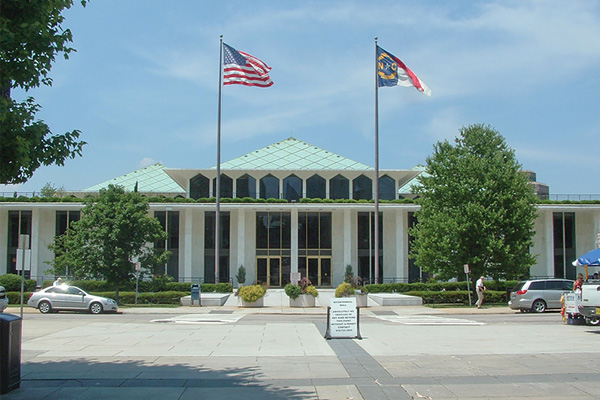The Greensboro City Council had some success in the short session of the North Carolina General Assembly that adjourned in July.
The Greensboro City Council legislative agenda – a list of proposed legislation requested by the City Council – included 11 items, most of which did not result in successful legislation according to a report provided by City Attorney Chuck Watts.
One big win for Greensboro was the passage of a bill that gives Greensboro the authority to establish a race- and gender-neutral small business enterprise program that will allow the city to give preference in awarding contracts to local small business enterprises.
The second part of that legislation the city requested – the authority to have civilian traffic investigators replace sworn police officers – did not pass and is expected to be filed as a separate bill in the 2023 legislative session.
A pilot program funded by the state was established in the budget to provide presumptive disability for firefighters diagnosed with cancer.
The legislature did restore the flexibility in transportation funding.
A request for search and rescue funding was included in the state budget.
No bill was filed on a request for fewer restrictions releasing police body worn camera videos. Under the current law, only a NC Superior Court judge can release police body worn camera videos, and even the City Council is not allowed to view the videos without the approval of a judge.
A bill to provide health care for retired city councilmembers remains in committee.
The City Council requested the authority to have electronic speed enforcement devices in school zones, but no action was taken on that request.
Greensboro agreed not to request bills on establishing the authority for a 25-mile-an-hour speed limit and also on default enrollment of new employees into a deferred compensation plan.
The Triad Connected Cities initiative was not included in the state budget nor was a bill introduced to get this underway.


A bill to provide health care for retired city councilmembers remains in committee!
City Council Members DO NOT merit this. This is an ELECTED POSITION, never intended to be a method to feather the nest of those who choose to run for elected office.
That’s OK, Yvonne (and family) and others get their money via the connections to other non-profits which connects them with family members and friends. See how this works?
The original request had the retired council members completely paying the premium so that it wouldn’t cost taxpayers. Of course that got changed along the way. As in most cases.
The council is an elected position not a “job”. If our teat sucking council members want benefits go get a real job in the public sector oh wait I see the problem no one on the council has the experience or qualifications that anyone would hire. What a bunch of sad sacks. PITIFULL Please someone share this comment with them especially a couple or three of them vaughn, johnson, hightower
Anyone with common sense does not take the GSO city council seriously, why should the
General Assembly do so?
Chuck Watts should not report to City Council but to the manager, as was the previous reporting arrangement. City Council members, including the mayor, use Chuck Watts to keep tabs on activity they should not be involved with. Chuck Watts is their go-to guy. As a consequence, Chuck Watts has been handsomely rewarded for his usefulness. On information and belief, Chuck Watts has not moved to Greensboro as his contract requires. City Council turns a blind eye. This is called corruption and should be investigated.
Your information and belief is wrong. Check out his voter registration. It’s a public record.
Does he actually live here or just own property. The law requires that to legally live somewhere you have to reside 6 months and 1 day a year. Does he do that
Is he merely paying rent, or did he move here? If he is renting, does he actually reside here? Anyone can change voter registration with an address purporting to live at the address. Voter registration can be used to try and show residence but may be a ruse. Although not accusing anyone of fraud, fake addresses is one way voter fraud is committed. Voter registration proves nothing.